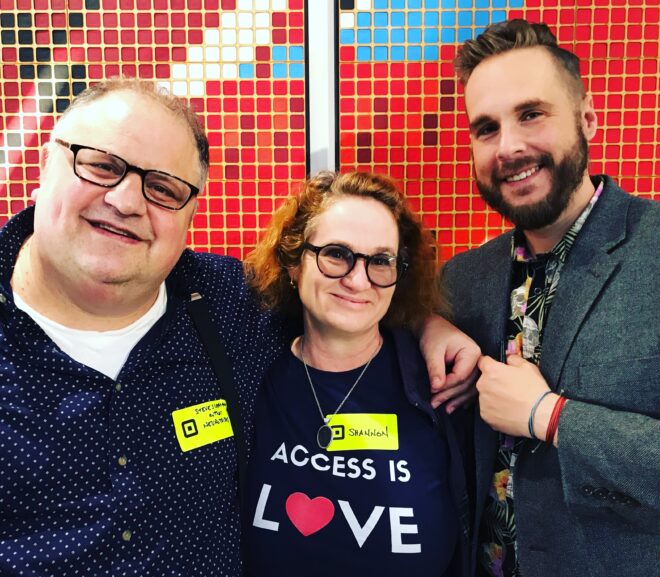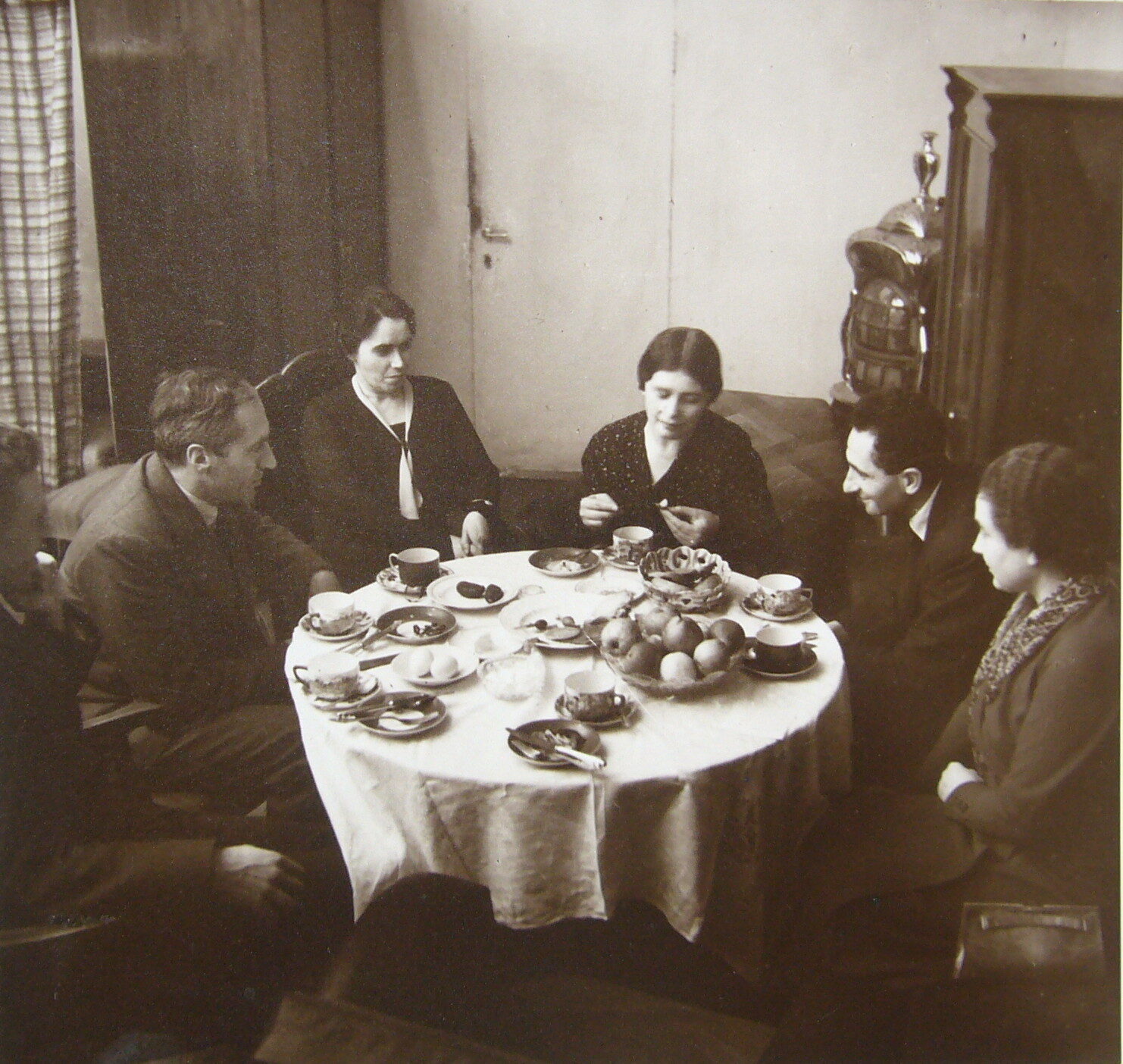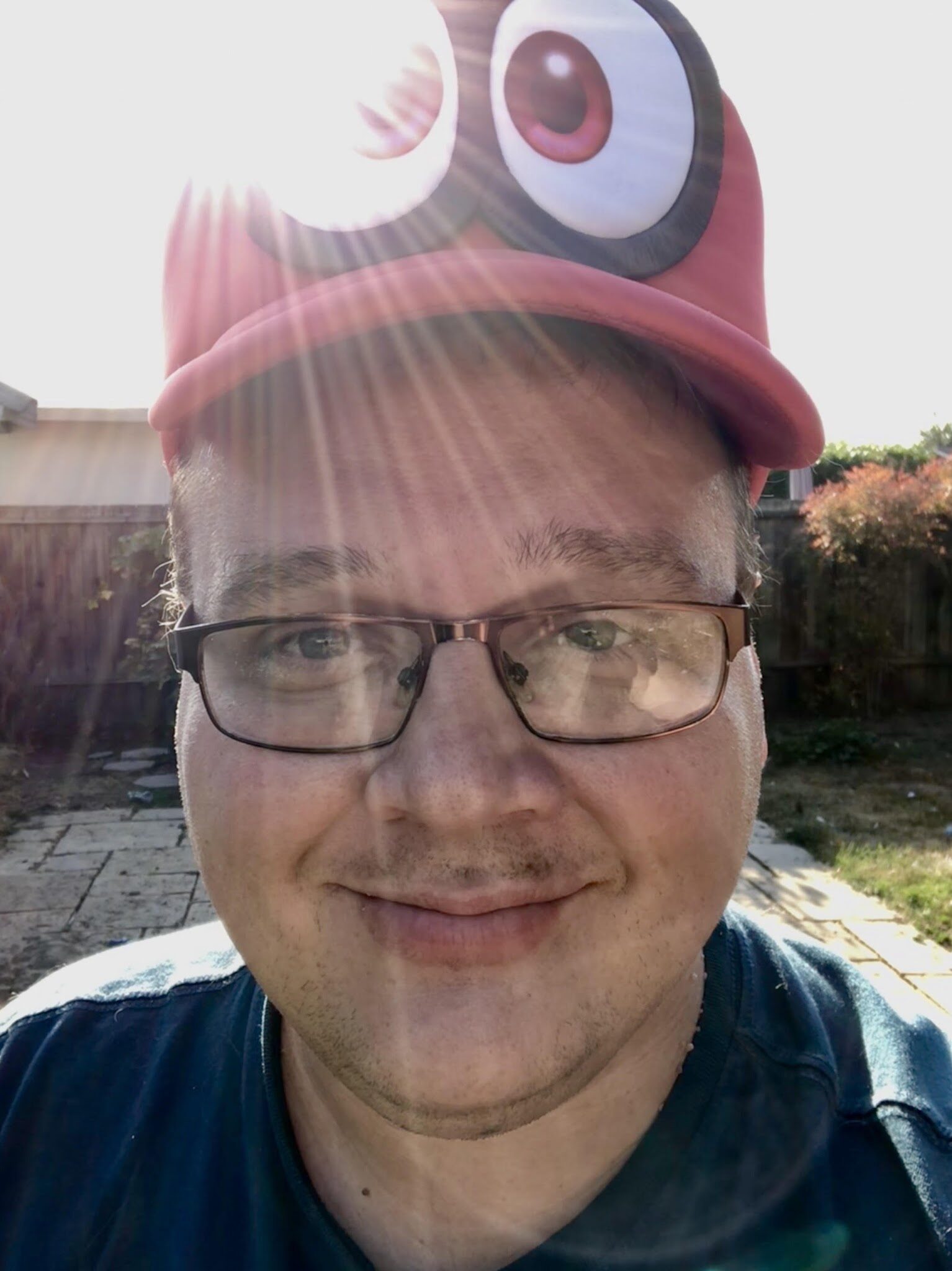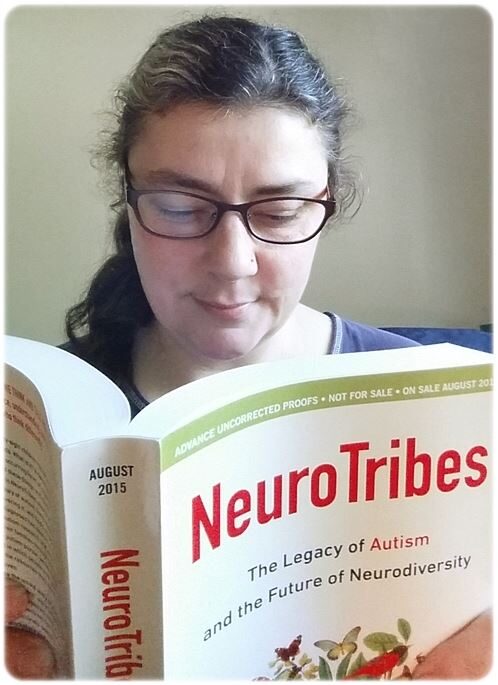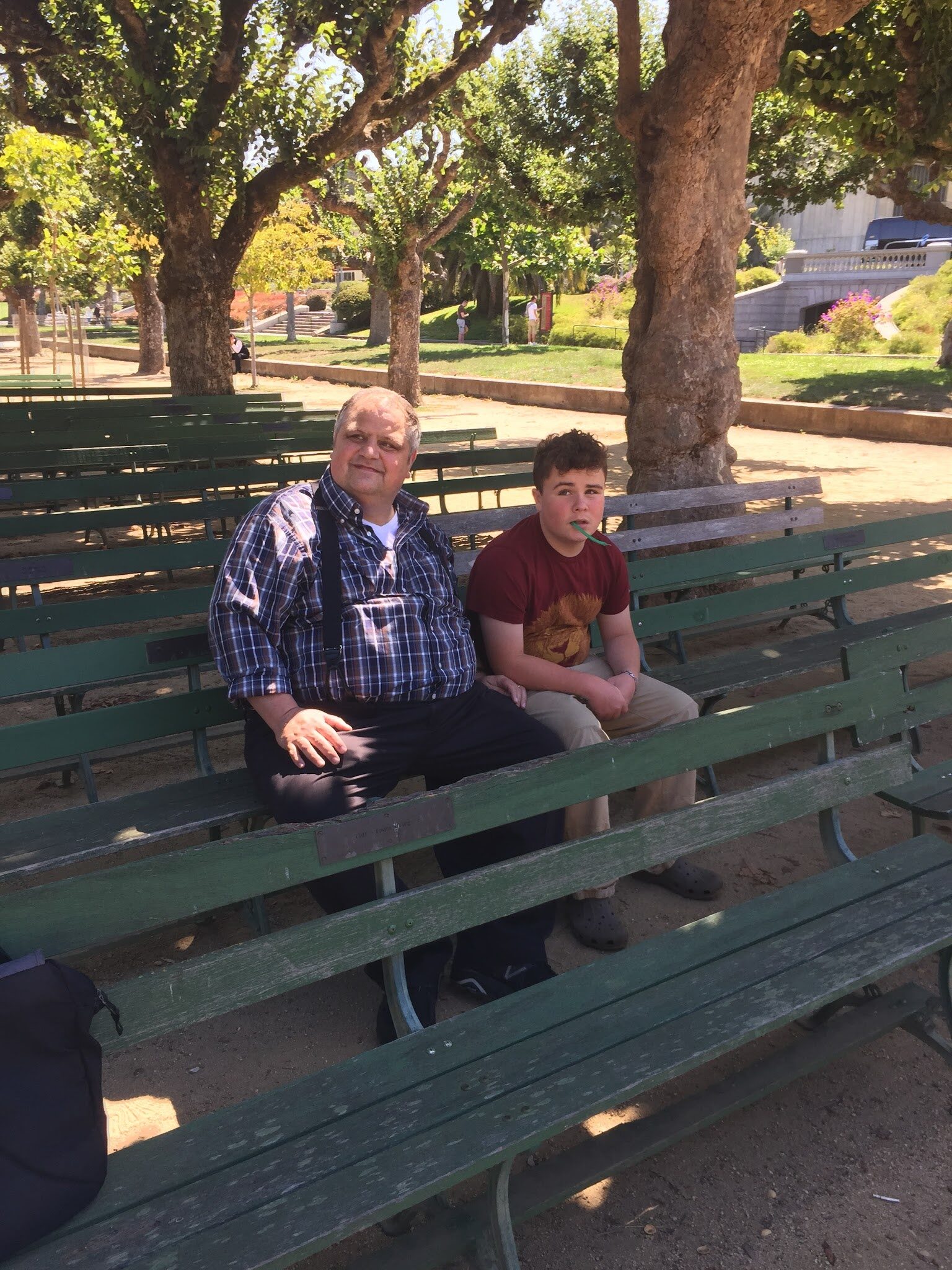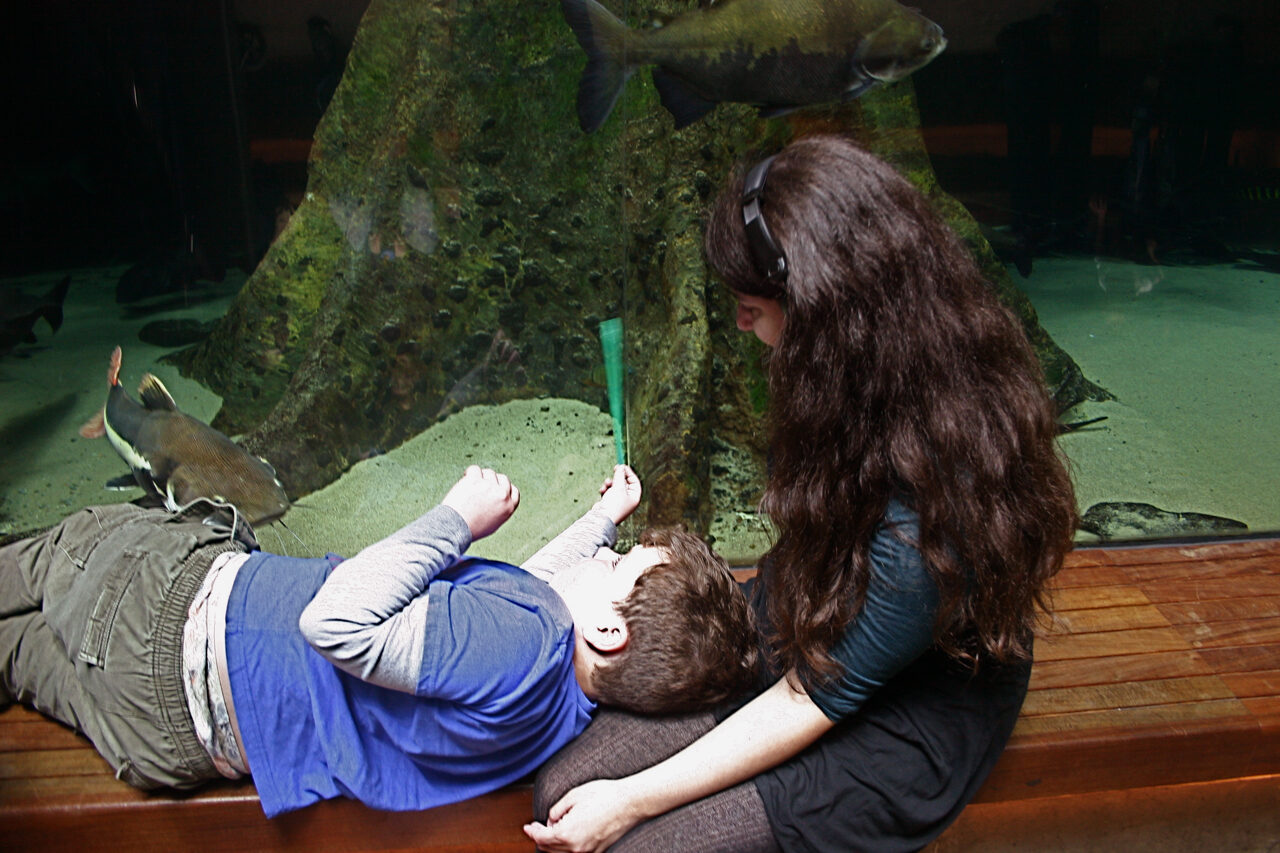“For too long autistic children have been just taught what they should do to fit in a neurotypical mold, instead of being taught who they are as autistic people, and who neurotypical people are as a neurotypical people, and how to appreciate both, and build translations between the two.”
Tag: Steve Silberman
“There are so many basic human rights that autistic people are being denied just because society isn’t accommodating autistic people.” Read about this issue and more, such as why just because autistic people are good at “systematizing” doesn’t mean they are all destined to be engineers, and “how a different style of education is appropriate for a systemizing thinker.” Our editor Carol Greenburg and NeuroTribes author Steve Silberman join Simon Baron-Cohen for a Zoom discussion on Baron-Cohen’s new book on autism, The Pattern Seekers. —- Katherine Hill: Hi everyone, I’m Katherine Hill for Basic Books, and I’m excited to welcome you to today’s conversation about Simon Baron-Cohen’s new book, The Pattern Seekers: How Autism Drives Human Invention. Joining us is Steve Silberman, author of the award-winning NeuroTribes: The Legacy of Autism and the Future of Neurodiversity. Steve’s articles have appeared in Wired, New York Times, New Yorker, and many other…
Steve Silberman, Shannon Rosa, and John Marble [image: Three adult white nerds, posing together and smiling.] Shannon Des Roches Rosa Senior Editor A large, friendly, and neurodiverse crowd came together at Square headquarters in San Francisco last night, to hear Steve Silberman and John Marble in conversation about autism and neurodiversity. The event was organized by by TPGA contributor Chris Williams and TPGA friend Chris Ereneta, Square employees both. We live-tweeted both the witty, empathy-filled conversation and the useful Q and A afterwards, but as tweet streams can be hard for some people to parse, here’s a streamlined text (and typos-fixed) version: Steve is talking about the origins of his book NeuroTribes, how in the early aughts, before he began his research, he thought autism was rare. And how the conspiracy theories about causation were really running rampant. He wrote his classic Wired article The Geek Syndrome in 2001, talking about…
by Maxfield Sparrow and Steve Silberman How complicit was Hans Asperger with the murderous eugenic policies of the Third Reich in his role as the head of the Children’s Clinic at University of Vienna in the 1930s and 1940s? This painful question, which has vexed autism history for decades, has been reopened by the simultaneous publication of Edith Sheffer’s book “Asperger’s Children” and Herwig Czech’s paper in The Journal of Molecular Autism, “Hans Asperger, National Socialism, and ‘race hygiene’ in Nazi-era Vienna.” By unearthing new information from the municipal archives in Vienna that was mistakenly believed to be lost, Sheffer and Czech make the case that Asperger was more culpable than historians previously believed. They portray him as a calculating, ambitious young physician who never joined the Nazi party but was “prematurely promoted” over the heads of his Jewish colleagues as they were purged from the university in the increasingly…
My adult autism diagnosis was, it still is, mind boggling to me. Perhaps to those of you who know me. Perhaps not. To have a paradigm shift in self reflection, and in reflection about my personal relationships. My memories now telling me different stories.
Shannon Des Roches Rosa www.thinkingautismguide.com We’ve said it before, we’ll say it again: There Is No Autism Epidemic. Not even after US estimates for autism prevalence recently rose to 1 in 45. How do we know there’s no autism epidemic? Two reasons: A comprehensive survey of autism prevalence in Korea estimated a rate of 1 in 39, as reported in 2011. There’s no reason US rates should be much different, so the new numbers are likely portraying reality more accurately, rather than indicating reality is changing. Researchers have been saying for years that autism’s prevalence has mostly risen in response to changes in diagnostic criteria, rather than due to environmental triggers or other causation ideas. The role of changing diagnostic criteria in rising autism rates is particularly relevant right now, given that theme’s prominence in Steve Silberman’s award-winning, current bestseller NeuroTribes. Silberman devotes a sizable section of the book to…
Patricia George-Zwicker www.persnicketypatricia.ca [Image: White woman with dark hair wearing black-rimmed glasses, and intently reading the book NeuroTribes.] When Shannon Rosa contacted me and asked if I’d be interested in doing a guest review for Steve Silberman’s highly anticipated book NeuroTribes: The Legacy of Autism and the Future of Neurodiversity, I excitedly and nervously said yes! Like so many others, I’ve been anxiously awaiting what I hoped would be a game changer for the Autism community and Autistic people. I’ve visited many book stores over the years in search of credible information or stories by people like me, especially stories and information from Autistic women. I often left disappointed and frustrated by the lack of history, compassion, accuracy and the almost non-existent input from actual Autistics like myself, finding instead a minefield of cures, desperation, martyr parents, male-dominated information and — said with respect — books about or by one…
Shannon Des Roches Rosa www.Squidalicious.com Steve Silberman and Leo Rosa [image: a white man with short salt-and pepper hair, and a white teen boy with short curly brown hair, sitting on a green bench.] Steve Silberman’s long-awaited book NeuroTribes: The Legacy of Autism and the Future of Neurodiversity arrives in bookstores today. Finally! If you have any interest in autism whatsoever, then trust me, you need this book. (No, really. We are so excited that NeuroTribes exists that we’re hosting a giveaway, details below.) I’ll be upfront with my disclosure: When Silberman described his intention to write a book that “upends conventional thinking about autism and suggests a broader model for acceptance, understanding, and full participation in society for people who think differently,” my family and I agreed (and were honored) to be included in the project. But I would recommend NeuroTribes regardless; I’ve been pining for an autism…
We want April — Autism Acceptance Month — to matter, to help further acceptance and understanding of autistic experiences, happiness, and rights for autistic people of all ages and abilities. We will be publishing your Autism Acceptance posts and pictures all month long. If you want to participate, contact us at thinkingautism at gmail dot com. -TPGA Editors It matters when you meet someone who gets you. When you see someone who moves like you. When you’re with someone who understands what you like and why, even if you’ve only known each other for thirty minutes. Leo felt instantly comfortable when he met Zoe (and Julia) for the first time, and hung out with them at a local aquarium. They were instant friends. Leo got to be his own genuine happy autistic self thanks to Zoe and Julia being their own warm lovely autistic selves. Autistic friends matter. They really…
We couldn’t be more grateful, humbled, or thrilled about the first wave of reviews for the new Thinking Person’s Guide to Autism Book! Steve Silberman, investigative reporter for Wired and other national magazines, declared Thinking Person’s Guide to Autism his Book of the Year (!): Covering a wide range of nuts-and-bolts subjects — from strategizing toilet training and and planning fun family outings, to helping your kid cope with bullying, to identifying the issues that a skilled speech-language therapist can work on with your child, to spotting and avoiding “autism cults,” to navigating byzantine special-needs bureaucracies and providing your child with appropriate assistive technology, to fighting for your kid’s right to an individualized education — the Thinking Person’s Guide to Autism is bracingly free of dogma, heavy-handed agendas, and pseudoscientific woo. What distinguishes it from, say, the fine guide for parents recently made freely downloadable by the National Autism Center, is…
